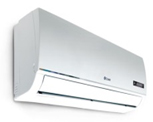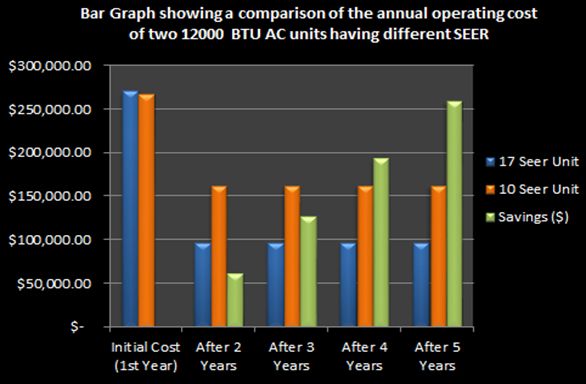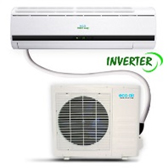Georgetown, June, 2014: For some, an air conditioning unit is considered a luxury, while others consider it a necessity. Regardless, one underlying fact is that they aide significantly, especially in tropical climates like Guyana, in cooling offices and homes.
 Air conditioners, popularly known as AC units, keep a room cool by moving heat from inside a home or office to the outside. They blow cool air into a building or room by pulling the heat out of the air. The air is cooled by blowing it over a set of cold pipes called an evaporator coil. This coil is filled with a special liquid called a refrigerant, which changes from a liquid to a gas as it absorbs heat from the air. The refrigerant is then pumped outside the house to another coil where it gives up its heat and changes back into a liquid. A pump, called a compressor, is used to move the refrigerant between the two coils and to change the pressure of the refrigerant so that it evaporates or condenses in the appropriate coils.
Air conditioners, popularly known as AC units, keep a room cool by moving heat from inside a home or office to the outside. They blow cool air into a building or room by pulling the heat out of the air. The air is cooled by blowing it over a set of cold pipes called an evaporator coil. This coil is filled with a special liquid called a refrigerant, which changes from a liquid to a gas as it absorbs heat from the air. The refrigerant is then pumped outside the house to another coil where it gives up its heat and changes back into a liquid. A pump, called a compressor, is used to move the refrigerant between the two coils and to change the pressure of the refrigerant so that it evaporates or condenses in the appropriate coils.
AC units are a costly investment and incur significant energy costs over its lifetime. However, with the right information one can certainly choose wisely when deciding what type of unit to purchase and once the purchase has been made, there are simple things that can be done to maximize its energy efficiency, thereby saving on electricity costs.
Whether you are considering the first-time purchase of an AC unit or planning to replace your old one, the tips outlined below will help you to stay cool, save energy and reduce utility bills. :
- Invest in air conditioner units that have higher SEER/EER ratings from trusted manufacturers! Energy star certified air conditioners have a higher energy efficiency ratio (EER) and seasonal energy efficiency ratio (SEER) than standard models. This makes them about 14% more efficient.
- Choose the right size of unit! An air conditioner that is oversized for the area it is supposed to cool will perform less efficiently and less effectively than a smaller, properly sized unit.
- Locate the AC in an area near the center of the room and on the shadiest side of the building.
- Minimize air leakage by fitting the room air conditioner snugly into its opening and sealing gaps with a foam weather stripping material.
- Keep out direct sunlight and close curtains or blinds during the day to reduce the amount of effort your air conditioner expends to keep your home/office cool.
- Computers and other home/office equipment also generate heat. Turn them off when they are not in use. This will reduce the heat load on the system and prevent the AC unit from using more energy for cooling.
- Make sure all doors and windows are sealed properly to keep your energy consumption low. If the cool air your air conditioner is circulating into your home/office is escaping, your system will have to work harder and longer to keep you cool.
- Setting your thermostat at a colder temperature than normal when you turn on your air conditioner will not cool your home or office any faster. This could result in excessive cooling and, therefore, unnecessary expense.
- Replace or clean your window or central air conditioning filters at least once a month or as directed by the manufacturer. Dirty filters restrict air flow and make air conditioners work harder to keep you cool.
Remember that the upfront costs for your new energy efficient air conditioner, can be offset over time from the energy savings gained, through lower energy bills, by choosing a high SEER/EER unit. By making wise use of your air conditioner you reduce energy consumption which in turn reduces the amount of green house gas emissions and contributes positively to the environment!


